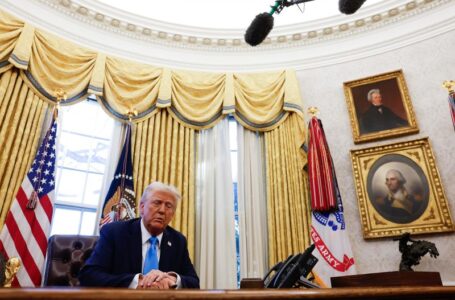Two tourists died in Sri Lanka after hostel fumigated for bedbugs, police say
Crypto Lawyer Reveals Fed’s Involvement in ‘Operation Chokepoint’ on Digital Assets


Image Source: Jimmy Aki, Midjourney
On January 31, popular crypto lawyer James Murphy exposed subtle anti-crypto moves by the US Federal Reserve against crypto custody firm Custodia Bank.
‘Master Account’ Approval Takes Forever
In a post on X (formerly Twitter), James “MetaLawMan” Murphy revealed a perceived coordinated anti-crypto effort by US government agencies, stirring concerns in the crypto community.
According to the renowned crypto lawyer, the US Securities and Exchange Commission (SEC) has not been the only entity taking legal action against crypto-backed businesses. The Federal Reserve has also been involved in what MetaLawMan described as “Operation Chokepoint 2.0.”
It’s not just the SEC.
The Federal Reserve leads the Operation Chokepoint 2.0 crackdown on crypto.
Custodia Bank @custodiabank has sued the Fed because it failed to approved Custodia’s application for a Fed “master account.”
A Fed “master account” is essentially a bank account…
— MetaLawMan (@MetaLawMan) January 31, 2024
To substantiate his claims, the blockchain lawyer cited the ongoing issue between digital asset payment and custody solutions firm Custodia Bank and the Feds.
In a twist of events, Custodia Bank sued the Federal Reserve for failing to approve its ‘master account’ application despite a thorough cross-examination by the Kansas branch of the apex bank.
From its position as a Wyoming-chartered depository institution, Custodia Bank met the qualifications to operate a ‘master account’ under federal laws.
A ‘master account’ is a bank account for financial firms that enables them to use the Federal Reserve System for check clearing, wire transfers, and automated clearing house (ACH) payments.
By design, the master account approval takes roughly 5 to 7 business days and is often given to federal or state-chartered depository institutions.
However, Custodia Bank’s application faced prolonged uncertainty for 20 months. It was subsequently denied eight months after the crypto custody firm filed its case in court.
MetaLawMan noted that the US SEC employed a similar strategy in its rulemaking petition against Coinbase.
All Was Rosy Before Federal Reserve’s Denial
Operation Chokepoint 2.0 seems novel to many, but it’s a term used to describe organized attempts by top financial bodies to undermine the integrity and adoption of digital assets in the US.
This is certainly the case regarding Custodia Bank, as the crypto-focused financial service firm reportedly got stellar reviews from the Kansas branch of the Feds.
In a shared report, Kansas City stated that the capital requirements for a master account application were “adequate.” The risk management was found to have “strong risk management practices,” and the management experience was impressive and “extensive.”
“Judge Scott Skavdahl of the U.S. District Court for the District of Wyoming said he likely would not dismiss the lawsuit Custodia Bank filed against the Fed board and Federal Reserve Bank of Kansas City earlier this year.” 1/3 https://t.co/9E72a5iYnt
— Julie A. Hill (@ProfJulieHill) October 29, 2022
Nevertheless, the subsequent report from the DC branch presented a contrasting view.
The Feds expressed a need for a robust capital requirement framework and acknowledged existing risk management gaps.
In addition to insufficient liquidity, the report highlighted that the management team lacked the relevant banking experience to qualify for a master account.
Meanwhile, the Federal Reserve has tried persuading the courts to dismiss the case. In a ruling in the US District Court for the District of Wyoming, Judge Scott Skavdahl said he would not approve the motion.
He stated that the lengthy approval timeframe was unexpected and should have taken less time.
The post Crypto Lawyer Reveals Fed’s Involvement in ‘Operation Chokepoint’ on Digital Assets appeared first on Cryptonews.











